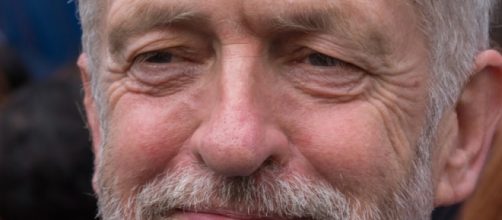The new Labour leader is facing a series of challenges within his own party. He said in his Leader’s speech today that he wanted to listen. Many of the stances he has advocated in the past have been dismissed, some by those serving in the Shadow Cabinet. So what are the divisions he has to overcome?
1.Europe
Corbyn has been hostile to the UK’s membership of the EU. The official stance now is that Labour will campaign for a future within the EU. However, the Prime Minister’s position is that he will campaign for continued membership only on the basis of a reform package.
This has led to some Labour MPs saying that they cannot argue for EU membership ‘at any price’.
2.Trident
The Labour leader, a member of CND, is famously opposed to the renewal of Trident. However, many in the Trades Union movement are in support of renewal as thousands of their members are employed in the industry.
3. Party split
Since his election as leader there has been a surge in membership of the party. Together with the ‘£3 supporters’ – those who paid that amount to have a vote in the leadership election, there are fears amongst the moderate sections of the party that this could lead to a purge of those not in line with Corbyn’s thinking.
4. Welfare
The last Government introduced a ‘welfare cap’, limiting the amount that those claiming benefits could receive.
Corbyn is in favour of abolishing the cap. However, his Shadow Work and Pensions Secretary, Owen Smith, said that the policy was only to resist the reduction in the rate to £20,000 (£23,000 in London).
5. Northern Ireland
Given his past ‘support’ for the IRA – he invited members to the House of Commons in the 1980s – he nevertheless raised eyebrows when he said last week on the subject of a united Ireland: “It’s an aspiration that I have always gone along with”.
Historically the Westminster Parliament has operated a bi-partisan approach on N Ireland.Vernon Coaker MP said: "Our policy is based on a bi-partisan approach built on the principle of consent.”
6. Syria
The first major Parliamentary challenge to Corbyn’s leadership is likely to be a vote on military action against the so-called Islamic State in Syria.
The Conservative Government has indicated that a vote is likely, although there is hesitation after Cameron lost a similar vote in 2013 when the then leader, Ed Miliband changed his stance. However, some Conservatives see this as a way to highlight Labour divisions. Labour sources say that as much as half the Shadow Cabinet are likely to vote in favour.
7. Defence
Until earlier this month Jeremy Corbyn was chair of the Stop the War Coalition, and throughout his Parliamentary career he has been involved with groups like CND. This has led the Conservative Government to paint him as a ‘threat to Britain’s national security.’
8. Nato
Corbyn would like to see Nato disbanded, but – despite blaming it for the Ukraine crisis – has admitted that there is no demand among the electorate for such a move.
There is no demand among his own MPs either. Lord Falconer said: “That would obviously be something I could not agree with."
9. Bank of England independence
Although independence was a Labour invention -- one of the first acts of Tony Blair’s first administration -- Corbyn and his Shadow Chancellor John McDonnell have suggested reviewing the mandate of the Bank of England. Lord Falconer again: "I'm in favour of keeping the Bank of England independent."
10. Nationalisation
Tony Blair secured a vote to abolish Clause 4 of the Labour Party constitution, thereby abandoning state ownership of assets. But that is something that Corbyn would like to revive. The railways, gas and electricity industries are front-runners to be targeted.
Today Labour made rail nationalization official policy, but Lord Falconer said he was not in favour of the nationalization of utilities. “I think that would be a vast expenditure when there are so many other things we should be spending money on, so that would not be the right thing to do."

